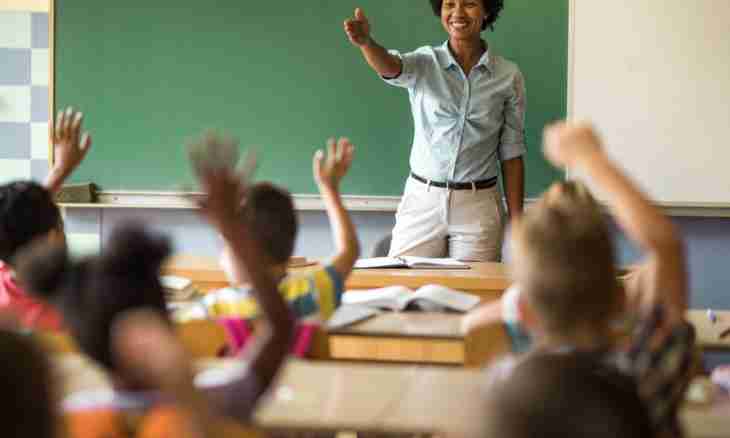Responsibility, diligence, discipline – all these skills do not develop in the person just like that. It is necessary to pay to their formation special attention, and to it labor education is directed.
The younger school age (6-10 years) is the most favorable period for formation of the skills and qualities necessary in adulthood. In particular it should be noted labor education of children because not enough attention is paid to it.
Labor education is specially organized involvement of the child in socially useful labor situations (or the simulated situations) for the purpose of development of the general labor skills.
Directions
Psychological readiness for work. Here first of all it is about randomness of activity. Ideally the aspect of randomness has to be completely created by 6-7 years when the child is admitted to school. One of the most important psychological problems of randomness is the ability to operate the movements of hands, that is to write, draw and operate with objects. Already at the advanced preschool age children have to be able to act according to requirements or according to the purpose, to be able to plan and predict results of own activity. This skill proceeds to be formed and develop also at younger school age when actions of children have to become more and more exact and productive.
Practical awareness. Children have to own elementary knowledge of properties of materials and opportunities of their use. This aspect of education favorably affects intelligence of the child and his thinking (evident and figurative and evident and effective). Formation of such personal qualities as accuracy, attentiveness and discipline is supposed
How to develop
In the majority children develop labor skills at school, namely – at technology lessons where they are taught skills of work, self-service and creative approach to the solution of problems. But efforts of school teachers are not enough, the most part of labor skills is formed at home.
Children in adulthood copy behavior of the parents. On the basis of their work the child receives own ideas of work and self-service. If the boy's father, coming from work, sits in front of the TV and demands from the wife of performance of all its requests, then the boy also will think that it is absolutely normal that his future wife has to be to it a servant. Or, if the girl sees that mom ignores the accumulating dirt in the apartment, then and in the future it will be very difficult to it to become the approximate hostess. Remember that the majority of behavior models goes from family. Show skills of housework on the example. It is capable to make for himself tea with sandwich each person, service staff for this purpose are not necessary. Just show that in self-service there is nothing strange.
Even the easiest tasks on the house focused not only for needs of the child, but also for needs of all family, help it with awareness of all importance of socially useful activity. Yes, the younger school student will hardly be able to render really significant help, but it does not mean that up to teenage age he has to go about only the own business for days on end. No, even the most insignificant instructions considerably will affect his future love for work. Charge to it to wipe a table, to feed a cat, to sweep a corridor, etc.
One of the most effective ways of development of labor skills in younger school students are games. Get as much as possible games connected with household affairs for the child. For the girl it can be a toy wind plate, for the boy – tool kit. Positively influence the child of a game, connected with various professional roles: doctor, firefighter, veterinarian, etc. To all other, in a game also the motivational sphere develops. The child not only studies some actions, but also forms love for work, and, as a result, high level of motivation.
Remember that it is necessary to train children to cope with difficulties of adulthood. You teach them to household skills, develop in them awareness of need of public work and an otvetstvennostz the acts. And then the adult child will tell you thanks!

